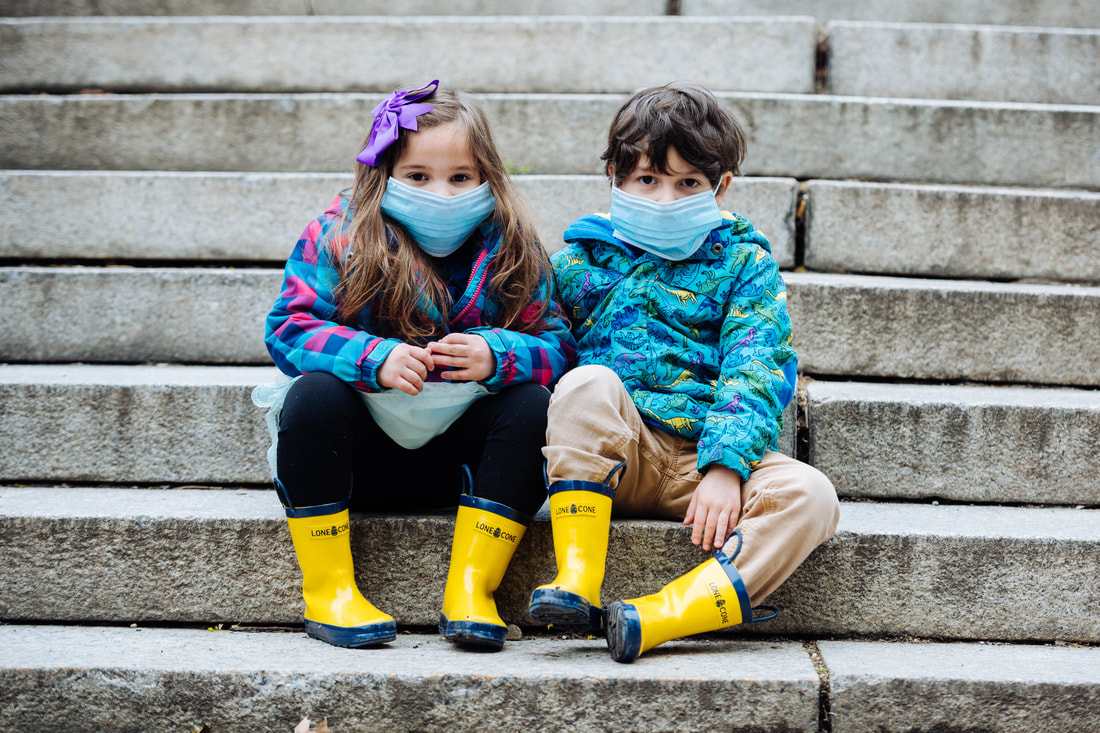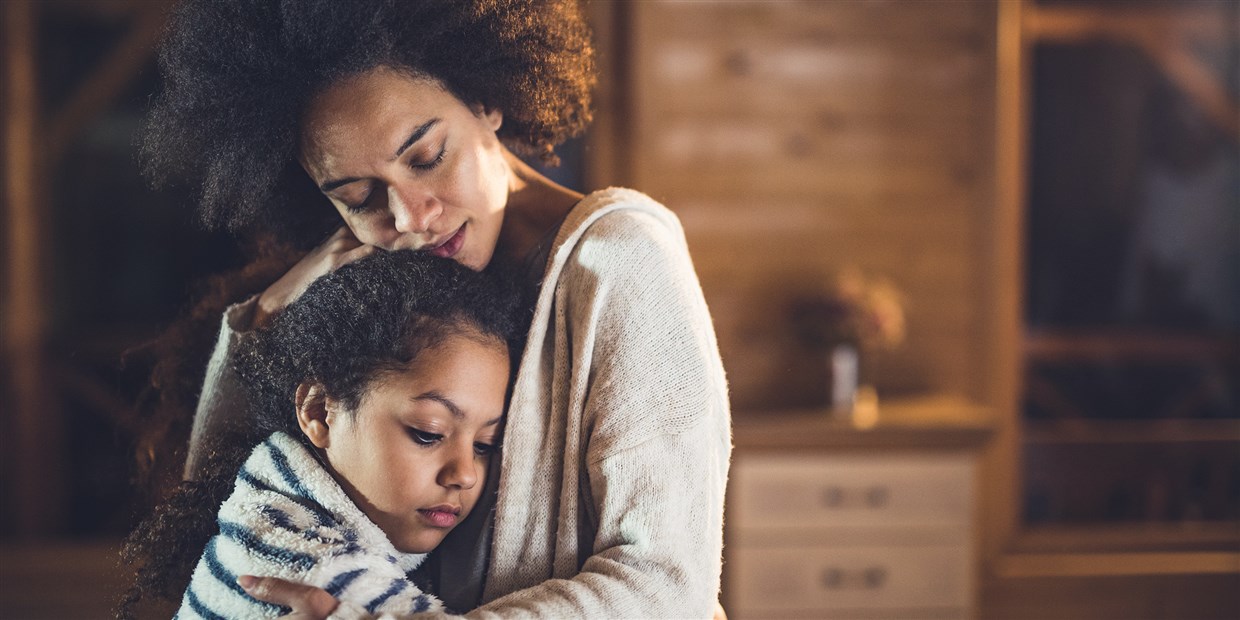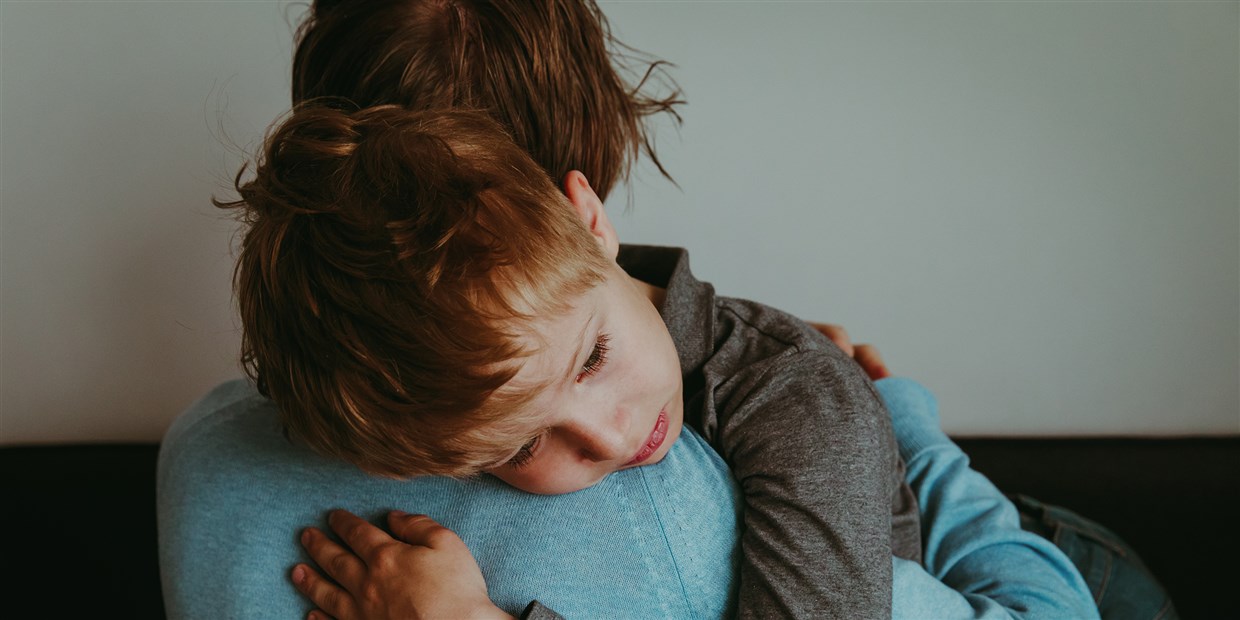|
Before coronavirus, 5-year-old Willa Carmenini wasn’t worried about monsters under her bed. Now she’s asking about them every night at bedtime, and she doesn’t like going outside her New York apartment.
“She says it's the mask,” says her mother, Andrea Saraffian, though Saraffian suspects it’s more than that. It’s the rules about touching elevator buttons or avoiding friendly neighbors in the lobby. It’s the stress that her parents try so hard to hide. Before coronavirus, 4-year-old twins Lilybelle and Adam Mrabet would run to hug their father when he walked in the door after working at the family restaurant in Harlem. Now, they must wait until he strips off his clothes and showers to avoid exposing them to the virus. “It’s a bit sad to see them learn to be so patient at such a young age,” says their mother, Gloribelle Perez. Six-year-old Walt Grahlman got sick with COVID-19 and had a fever of 102 degrees for a week. His parents got sick, too, and lost work in his physical therapy practice and her work as a creative director. Now that they have recovered, Walt calls having Mom as a teacher “silly.” He never used the word “hate” before, but he hates coronavirus. Read more
0 Comments
My son is in a bit of a mommy phase. You might think being locked at home together 24 hours a day would satisfy his need to be with me, but you would be wrong.
The coronavirus crisis has only intensified his clinginess. He wants mommy for school activities, lies beneath mommy when she does yoga, accompanies mommy to the bathroom. And while I love the love, it’s a strain when he crashes my Zoom meetings in his underwear and I'm like a latter-day BBC Dad. Child development experts say it’s to be expected that in a time of crisis or anxiety, a young child might show a preference for one parent. They’re “hunkering down in their comfort zone,” said Tovah Klein, director of the Barnard College Center for Toddler Development. Read more. Around the time school was canceled because of coronavirus, my 5-year-old started climbing in bed with me every night. His excuses got increasingly baroque: bad dreams, a spider, hundreds of spiders, a black hole.
He started playing “baby." He sucked on comfort blankets he had previously abandoned. Finally, he said he wanted to climb back into my tummy. What I was witnessing was a slow-motion regression, all the way back to the womb. Stress and anxiety can show up in all kinds of ways in children: irritability, defiance, clinginess. But one of the most common responses is regression. Sleep regression and toddler potty training regressions are common, but psychologists say all children (and adults) may regress in times of stress. Read more |
AuthorLisa Tolin is a journalist and Special Projects Editor at NBC News. Archives
June 2020
Categories |



 RSS Feed
RSS Feed
